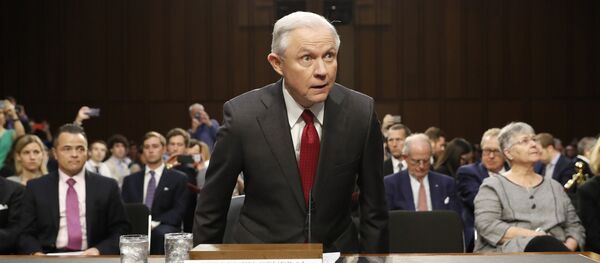There were 30 percent more court-authorized wiretaps in 2017 compared with 2016, according to a judiciary report filed June 30 with the US Courts' Administrative Office. The revelation is "the latest indicator sign" of how the Trump administration "is shifting our government from facilitating a healthy state into something closer to a police state," Pulitzer prize-winning investigative journalist David Cay Johnston wrote last week.
"No wiretap applications were reported as denied in 2017," federal courts reported.
In 2016, federal and state courts signed off on requests from law enforcement officers to conduct wiretaps 3,168 times, according to federal data, while in 2017, courts approved some 3,813 wiretaps. Most of the wiretaps targeted cell phones, and each wiretap carried an average cost of $74,718.
Authorities arrested a total of 9,565 people linked to the wiretaps, the report said.
The growth in approved wiretaps was not confined to snooping on drug traffickers. Some 595 of the 645 more wiretaps in 2017 are reported under the category "other or unspecified."
Courts are required by law to submit a report every year detailing exactly how many wiretaps were authorized during the preceding calendar year. According to Johnston, authorities are generally slow to report their wiretaps, so the final count will likely show that wiretaps actually increased by around 40 percent rather than 30 percent.
These figures excluded surveillance requests made by law enforcement authorities through the mostly secret Foreign Intelligence Surveillance Court, or the so-called FISA Court.
In April, a federal report showed that requests made through the secret court to approve national security intercepts were actually rejected 26 times and limited 50 times in 2017, a shocking development in light of the fact that just 21 requests have been denied or restrained through the same court over the past 38 years.




